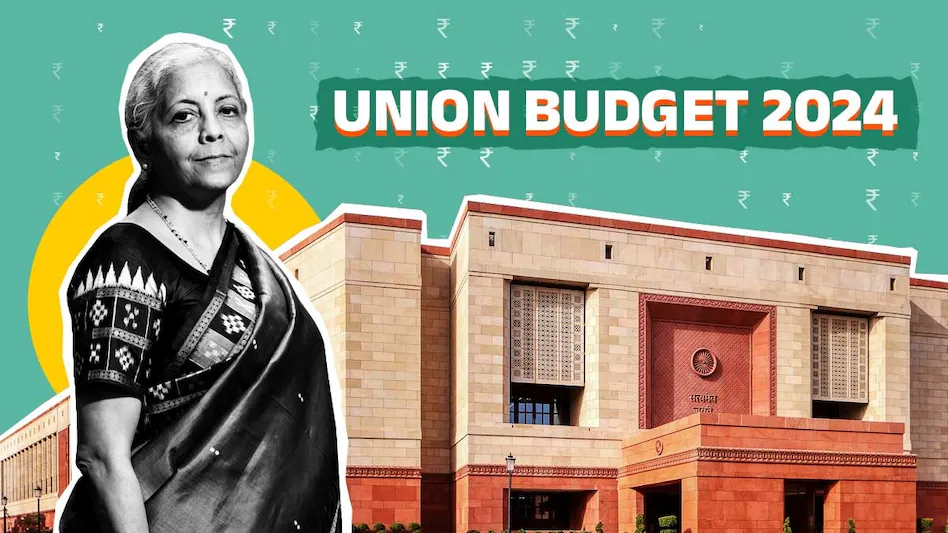
The Budget 2024-25 marks a significant milestone in India’s economic strategy, aiming to propel growth through targeted investments and policy reforms. With a thematic focus on employment, skilling, MSMEs, and the middle class, this budget sets ambitious goals to rejuvenate various sectors and stimulate economic activity nationwide.
Key Highlights of Budget 2024
1. Agriculture and Allied Sectors
The allocation of ₹1.52 lakh crore for agriculture and allied sectors underscores the government’s commitment to modernizing farming practices, enhancing productivity, and ensuring food security. This substantial investment is expected to bolster rural incomes and agricultural output, potentially benefiting agri-businesses and related sectors. Investors in agriculture-focused stocks may see opportunities as the sector receives renewed attention and funding support.
2. Infrastructure Development
₹2 lakh crore allocated for five flagship schemes, including roadways, railways, and digital infrastructure, aims to bridge infrastructure gaps and spur economic growth. Improved connectivity through these initiatives is anticipated to enhance logistics efficiency and support industrial expansion. Companies involved in infrastructure development, construction, and logistics are poised to benefit from increased government spending in these areas.
3. Andhra Pradesh Capital Support
₹15,000 crore financial support for the new capital of Andhra Pradesh is expected to stimulate regional economic activities and infrastructure projects, impacting local real estate and construction sectors.
4. Employment Initiatives
Introduction of incentives for first-time employees, including one month’s wage through EPFO, aims to formalize employment and enhance social security, potentially boosting consumer spending and economic sentiment.
5. Education and Skilling Initiatives
The provision of up to ₹10 lakh for domestic institution studies and incentives for first-time employees registered in EPFO are significant steps towards empowering the youth and enhancing employability. The focus on skill development aligns with India’s demographic dividend, aiming to equip the workforce with relevant skills for future job markets. Stocks in education and training sectors could see increased investor interest as these initiatives unfold.
6. Bihar Highway Development
₹26,000 crore allocation for highways in Bihar aims to improve connectivity and logistics, potentially benefiting transportation and logistics sector stocks.
7. MSME and Industrial Development
Measures such as credit guarantee schemes and increased Mudra loan limits are aimed at boosting MSME and industrial growth, potentially influencing related sector stocks positively.
8. Capital Expenditure
₹11.11 lakh crore allocation for capital expenditure, around 3.4% of GDP, is expected to spur infrastructure development, influencing related stocks positively.
9. Research and Innovation
₹1 lakh crore provision for research and innovation aims to drive technological advancement, potentially benefiting technology and innovation-driven stocks.
10. Tax Reforms and Fiscal Management
Introduction of a new tax regime and rationalisation of customs duties are expected to impact various sectors differently, influencing stock market performances.
Impact of budget in Stock Market
Investors are keenly watching how the budget measures will impact different sectors and stock performances:
Sectoral Analysis: Sectors such as agriculture, infrastructure, education, and technology are likely to witness varying impacts based on budget allocations and policy reforms.
Investor Sentiment: The market’s reaction to tax reforms, fiscal deficit projections, and capital expenditure plans will shape investor sentiment and stock market movements.
Long-term Investments: With focus areas like infrastructure and innovation receiving significant funding, long-term investors may find opportunities in stocks aligned with these sectors.
Impact on Stock Market Investors are closely monitoring how budgetary measures will translate into corporate earnings and stock market performances. Sectors directly benefiting from budget allocations, such as infrastructure, education, and MSMEs, are likely to attract investor attention. Moreover, changes in tax policies and fiscal deficit projections will shape market sentiment and investment decisions in the coming fiscal year.
Conclusion
Budget 2024-25 sets a transformative agenda aimed at economic revival, employment generation, and sectoral growth. For detailed insights and the complete budget speech, visit the official website here
Stay informed about how Budget 2024 impacts the stock market and economic landscape, ensuring you make informed investment decisions in the evolving market scenario. To learn stock market – get the details here.









